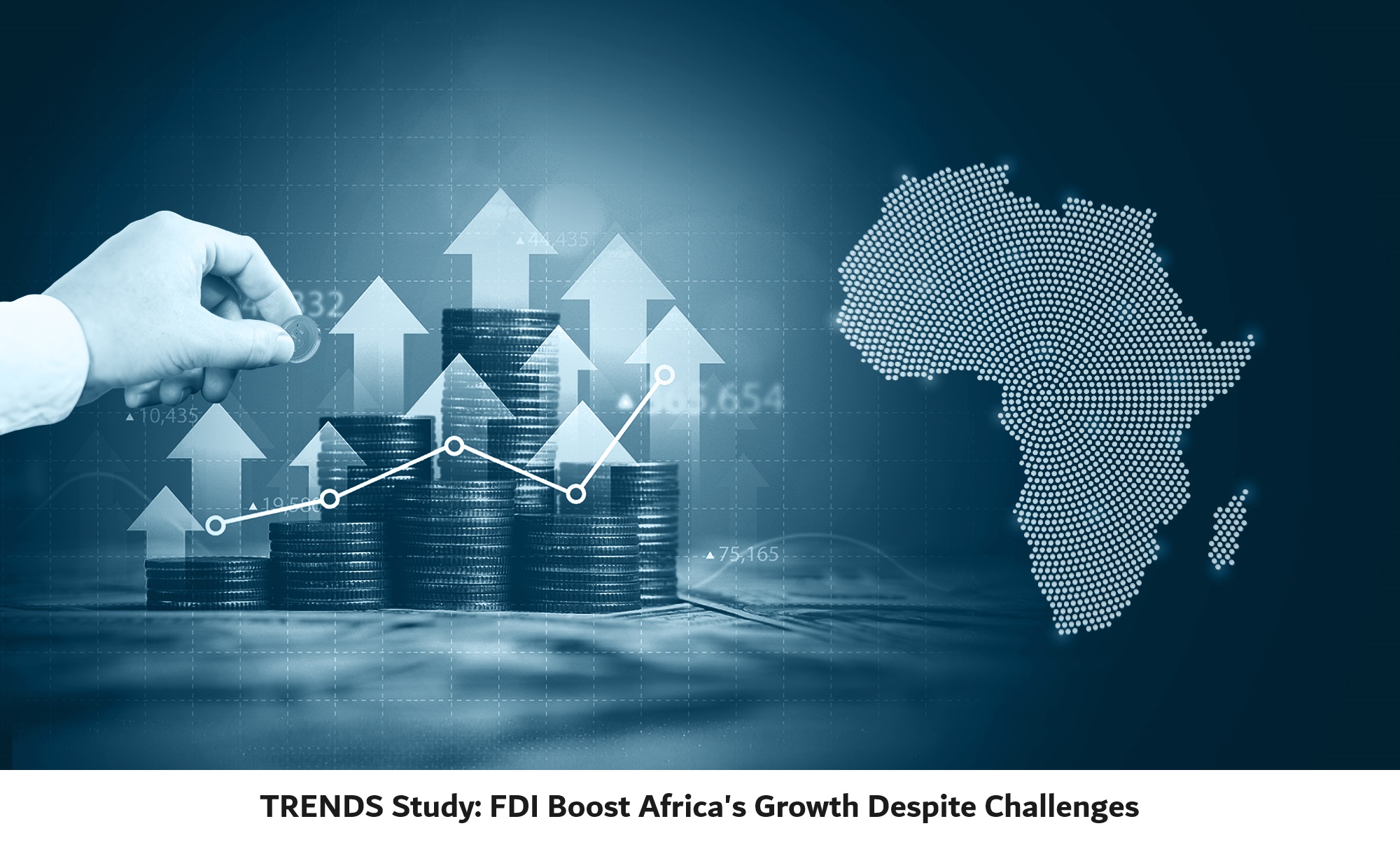Foreign Direct Investment (FDI) has long been recognized as a catalyst for economic growth and development in Africa. Over the past few decades, African countries have increasingly become attractive destinations for foreign investors seeking new opportunities and markets. Despite these positive developments, challenges remain for FDI in Africa. Issues such as political instability, corruption, inadequate infrastructure, and regulatory uncertainties continue to deter some investors from committing capital to the continent.
The Economic Studies Department at Trends research and Advisory conducted the study entitled “Foreign Direct Investment in Africa: Trends and Prospects.” The study indicated that the continent has received increased investments in sectors such as telecommunications, renewable energy and banking.
The study holds that Africa is indeed attracting more foreign investors, driven by the abundance of natural resources, such as oil, gas, minerals and agricultural products.
Furthermore, African governments have made significant efforts to improve their business environments and attract more FDI. Many countries have implemented economic reforms, streamlined regulatory processes, and reduced barriers to entry for foreign investors. This has helped to enhance a conducive environment for FDI, making it easier for companies to set up operations, access markets, and do business in Africa.
However, some challenges continue to hinder the flow of FDI to Africa, such as political instability, corruption, inadequate infrastructure and regulatory uncertainty.
The study concluded that Africa remains an attractive investment destination with untapped potential. However, addressing the challenges it faces will be essential to maximize the continent’s ability to attract FDI and promote economic growth and development.



